by Donna Brown
 I’ve been asked more than once about the difference between a blog hop and a blog tour. Unless you’ve been involved in both it’s not easy to know, especially as the two share some common ground. Add sharing contests to that, which often go hand in hand with a hop or tour or can be run entirely independently, and you have a medley of blog events to get your head around. The internet being what it is there are no hard and fast rules: the boundaries are constantly shifting. With that in mind, here’s my (current!) take on all three.
I’ve been asked more than once about the difference between a blog hop and a blog tour. Unless you’ve been involved in both it’s not easy to know, especially as the two share some common ground. Add sharing contests to that, which often go hand in hand with a hop or tour or can be run entirely independently, and you have a medley of blog events to get your head around. The internet being what it is there are no hard and fast rules: the boundaries are constantly shifting. With that in mind, here’s my (current!) take on all three.
Blog Tours
Tours are are highly promotional, with posts usually centred around one or more books. Bloggers run an excerpt, guest post, interview or review. The intent is not necessarily to result in direct book sales but rather exposure, platform building and getting your name – and book – seen. Some authors make the mistake of assuming that one book tour will rocket a book to fame. In fact, if the old adage still rings true that it takes 7 views before someone is swayed to buy something, it’s far better to think of tours as one small part of an overall book marketing campaign.
Pros and Cons of Blog Tours
The main benefit of a tour is to the author in the form of exposure, with sales as a bonus. There is some benefit to a blogger in terms of traffic and content. However, there is some discontent amongst some bloggers for two main reasons:
- Authors often don’t visit, comment on or share the posts, therefore doing little to help the blogger’s own platform building.
- Authors often provide duplicate content. While some bloggers are happy to accept reworked posts, submitting exact duplicates is of little benefit to bloggers trying to optimise their site and content for search engines. Additionally, who wants to visit a blog to read a post that appeared somewhere else just a month ago?
However, one plus point for bloggers is they can potentially receive more traffic being part of a tour than posting a standalone post, especially if the tour is being run by a good company that shares posts via social media such as Twitter and Facebook, and encourages authors to do the same. Blog Tour time frame: Anywhere from a few days to 2-3 months.
Blog Hops
Blog hops are short events – often just for a day but sometimes for multiple days to enable people to have a choice of posting dates and have time to visit everyone taking part. Hops are usually sponsored or hosted by one or more blogs/sites with the proviso being that in exchange for the set-up work done by the host, everyone involved visits the hosts and – usually – mentions them in their posts. Hops are generally themed but give people pretty free reign to write about what they like within that theme. They’re popular because they allow bloggers to be very creative and lead to a variety of different posts. Everyone involved posts a list of all participating blogs on their site so people can easily go from blog to blog.
Pros and Cons of Blog Hops
Hops are much less promotional than tours. Although they will build exposure, hops are much more about connecting with people and showing your versatility as an author/blogger and community player. Therefore, many authors will shy away on the basis that it’s a lot of work for little perceived return. However, on the upside, hops are considerably more engaging and often lead to increased traffic figures for the blogs involved, often for several days. They also generate a lot of comments and can lead to increased blog followers/subscribers. They can also be considerably cheaper to set up than promotional events or tours. Timeframe: Usually just a day but can be longer, and it usually takes people several days to catch up and comment on all posts.
Sharing Contests
Sharing contests can be run as a tie-in with a tour or hop or a standalone event and usually involve offering a prize for spreading the word about an upcoming or ongoing event or promotion. These days, sharing contests are easily executed thanks to a great tool called Rafflecopter. This platform lets you set entries, then collates all the information, allowing you to moderate entries before drawing a random winner. It also enables you to use the same entry form across multiple websites so you can offer one large coordinated draw seen in many places, rather than multiple smaller giveaways. The Twitter entry is most effective, as it is so easy to moderate. You can even write a suggested Tweet to include certain @usernames or #hashtags. Entries can be one off – like following someone on Twitter – or daily – like tweeting the event link.
Pros and Cons of Sharing Contests
Sharing contests often enable you to get a lot of Tweets going out about a particular event across a short period of time, encouraging others to find out more. This prevents you from having to tweet the same link 30 times a day to get it seen. The downside is that some people are devoted giveaway lovers and have Twitter accounts set up simply to complete the required Tweet and enter the draw so you won’t get much reach via those entrants. However, for others it can be incentive enough to convince them to spread the word to hundreds or thousands of people and hopefully encourage sign ups. As most direct ‘Buy my book’ Tweets fall on deaf ears, ‘Buy this book’ Tweets are probably a waste of a good prize. Promoting an event can be much more beneficial and this is often a substantially cheaper method of spreading the word than advertising on one site. Sharing Contest timeframe: Varies considerably – anything from a few days to a few weeks
The truth is that not one of these will be a magic bullet to book sales but the right combination can build exposure, goodwill and interest. Bloggers’ time and blog space is becoming increasingly valuable. Giving them a reason to showcase you, your book or your event that can alsobenefit their blog is key to building good long term relations.
 Donna Brown is a blogger, writing about books, games and cats on a daily basis. She’s been blogging for the last few years and addicted to the internet for longer than she cares to admit. She lives in Yorkshire, UK, with her husband David M. Brown and their six rescue cats.
Donna Brown is a blogger, writing about books, games and cats on a daily basis. She’s been blogging for the last few years and addicted to the internet for longer than she cares to admit. She lives in Yorkshire, UK, with her husband David M. Brown and their six rescue cats.
Note from Molly: Check out my novels on Amazon, join my Reader’s Club for freebies and book news, and follow me on Twitter. This original content is copyright protected. Thank you so much. Mwah!



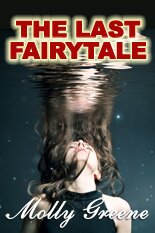
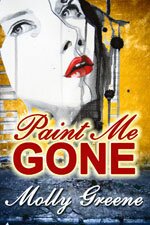
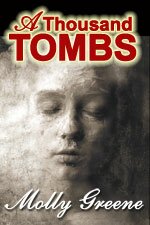
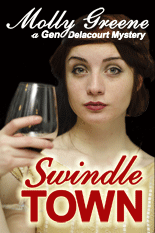
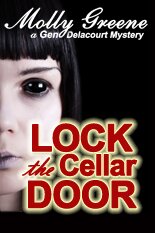
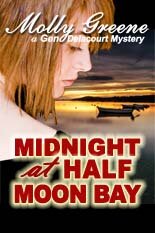
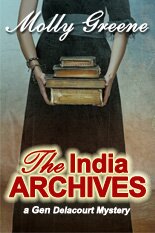

Comments are closed.